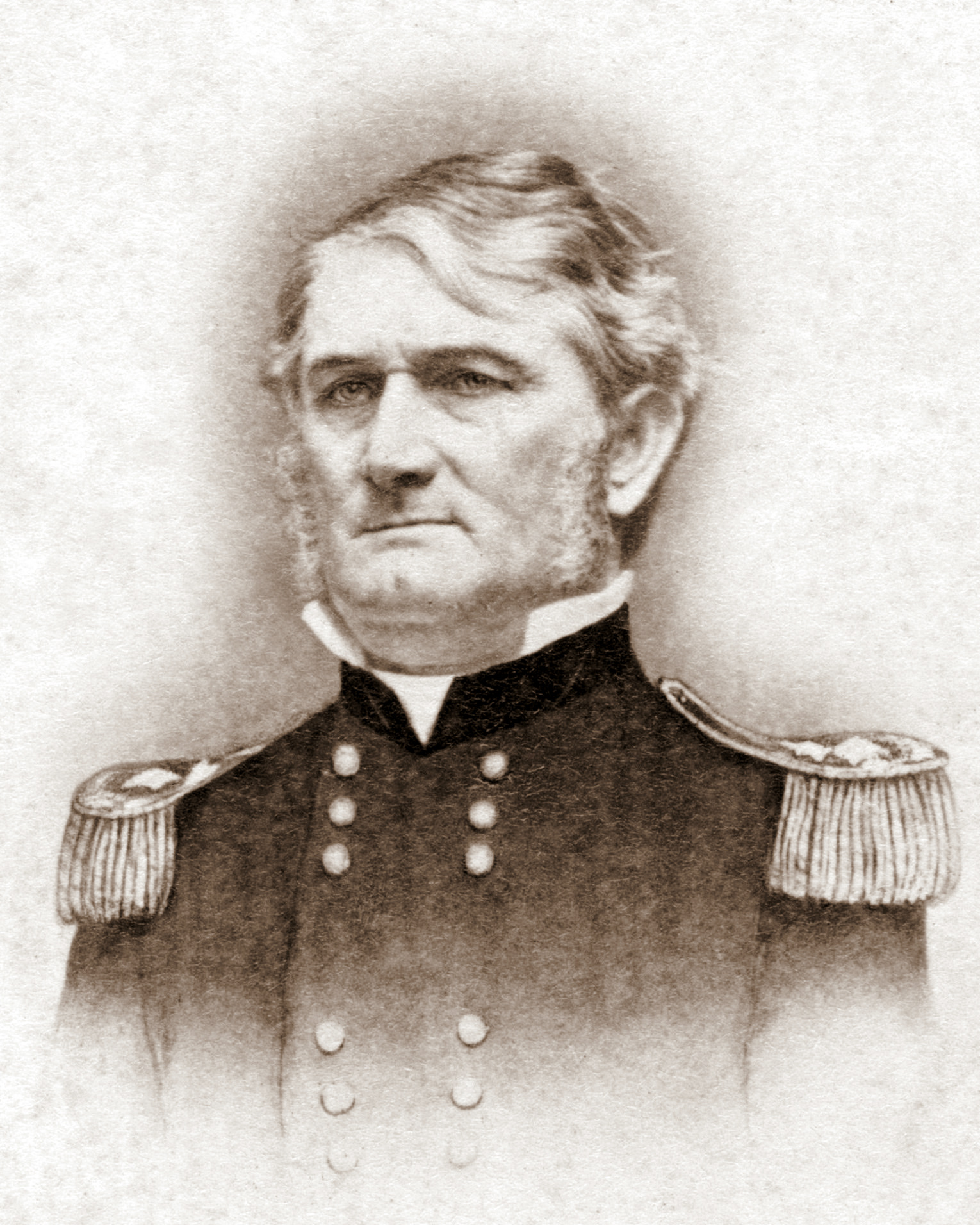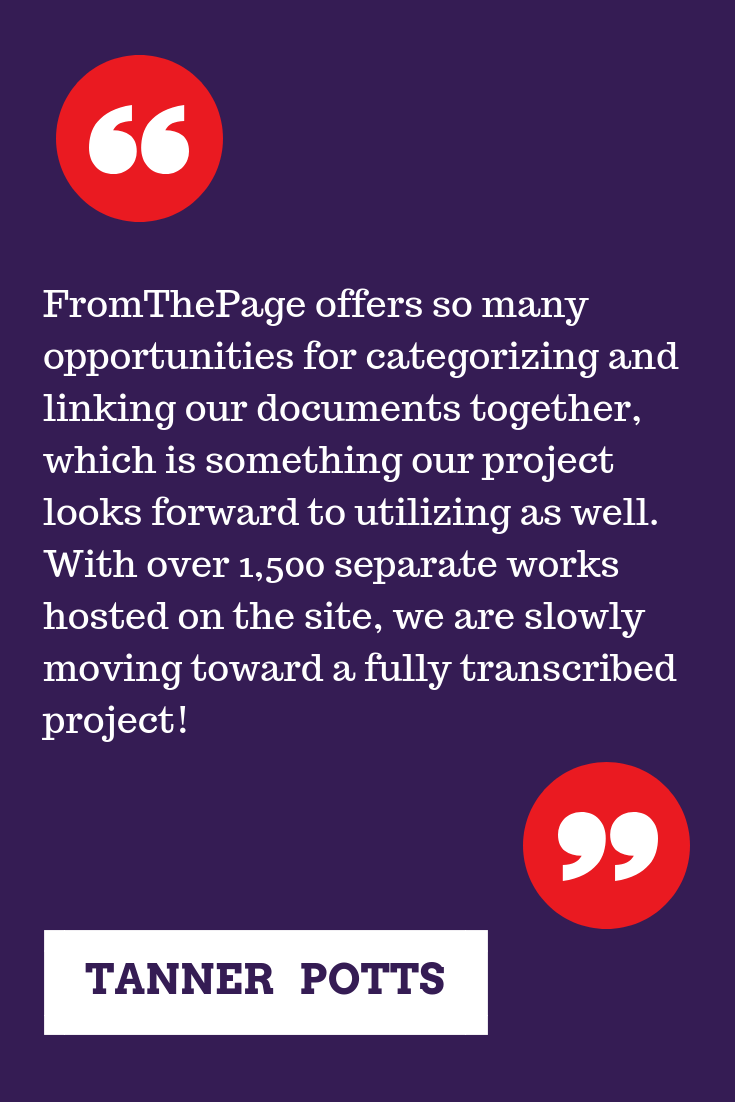Tanner Potts is Research Associate for the Sewanee Project on Slavery, Race and Reconciliation at the University of the South.

First, tell us about your documents.
Our documents on FromThePage focus on the founding period of the University of the South, 1856-1868. During this time, the ten southern-most dioceses of the Episcopal church united to found a university that would counter abolitionist rhetoric that “a slaveholding people cannot be a people of high moral and intellectual character.” These sources include correspondence about fundraising, ledgers listing expenses for early campus construction, and other promotional materials for the new institution. Our group on campus is continuing to scan and upload new documents as we dive deeper into our own university’s archives.
What are your goals for the project?
The Sewanee Project on Slavery, Race and Reconciliation aims to bring together the Sewanee community—students, staff, faculty, alumni, and area residents—to pursue a comprehensive examination and reflective consideration of our university’s historic entanglements with the institution of slavery and its legacies in the long century of racial injustice after the end of the Civil War. Our group’s work on FromThePage bolsters the greater goals of the project. By digitizing our documents and enlisting people from our alumni base and everywhere else in transcribing them, we hope to make the history of our institution more accessible to a wider community. Our project hosts lectures and forums on campus, but often the history is more efficiently conveyed by engaging the primary sources. When you read the words at the heart of our university’s founding, it becomes evident that the institution of slavery weighed heavily on the minds of the founding generation.
How are you recruiting or finding volunteers/collaborators? Are you engaging alumni or students?
We continue to promote FromThePage at on-campus events and through our website. Our summer interns created an instructional video to train users on and off our campus. We post specific documents to our Project’s Facebook page for our “likers” to transcribe and also link to FromThePage when publishing on our blog. Soon, we hope to hold on-campus transcription events during homecomings and reunions as well as engaging groups in the community like the Friends of the Library, retired faculty, and local historical societies.
 Can you share your experience using FromThePage?
Can you share your experience using FromThePage?
FromThePage has exceeded our expectations as a means of broadcasting our research to a wider audience. The ease of use makes the site simple to explain. Also, Ben and Sara have been more than helpful with any questions along the way. FromThePage offers so many opportunities for categorizing and linking our documents together, which is something our project looks forward to utilizing as well. With over 1,500 separate works hosted on the site, we are slowly moving toward a fully transcribed project!
What have you discovered about the University's involvement with slavery?
Our project began in the summer of 2017 by examining our institutional history with the focus on race and slavery. When you center these topics and questions in your research, the sources begin to tell a different story. Other institutional histories have noted that the founders of the University of the South enslaved people. However, our research has illuminated the centrality of the South’s “peculiar institution” to its new university. The first board of trustees argued for selecting the Sewanee site in Tennessee because it offered the most accessible location by railroad within “the pale of the plantation states.” The South Cumberland Plateau’s mountain climate, they believed, allowed the long academic break to occur in the winter months, when large plantation owners would be found at home instead of at northern resorts like Newport or Saratoga. The winter break also appealed to the founders, for that was a time when a planter’s son could reside at home, “when he [could] engage in the sports which make him a true Southern man, hunting, shooting, riding; when he [could] mingle freely with the slaves who are in his future to be placed under his management and control.” To even understand the basic placement of campus, slavery must be placed at the center of the decision-making.
Our documents hosted on FromThePage most importantly reveal both the anxieties and the hopes of our slaveholding founders. They were anxious about the growing abolitionist movement in the North; this would have targeted not only their economic lives, but also their spiritual lives. For the Southern bishops, owning and baptizing enslaved persons were congruent and encouraged by the Gospel. But, these men were also hopeful that a University of the South could produce a credible defense for a slaveholding civilization. With these sources in mind, our work continues to shed light on this history and to investigate its legacies on campus today.
Anything else you'd like to tell us?
Keep up with our work on Facebook, our website, and, of course, on FromThePage!
